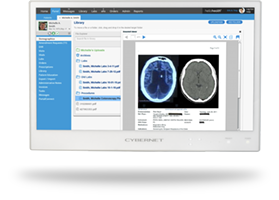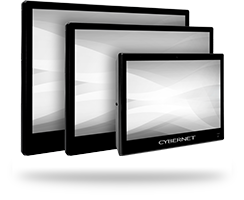When building or purchasing a new computer, one of the most important considerations is storage, the question of solid-state drive vs. hard disk drive. Choosing between these two options requires understanding their merits, as well as the requirements of the PC and how it’ll be used.
What Is HDD Storage?
Hard disk drives, or HDDs, are data storage devices that use rotating disks coated with magnetic material to store and retrieve data. HDDs were invented by IBM in 1956 and utilize disks that are divided into multiple sectors and tracks that can be read and updated by the built-in actuator arm. At the tip of this arm is a read/write head, which can access information saved on the HDD (in the form of 1s and 0s on the disk’s magnetic field) or save new information onto it.
This design enables HDDs to store massive amounts of information. The original IBM 350 took up as much space as two refrigerators, weighed nearly a ton, and stored 3.75 megabytes. Modern HDDs are 2.5 to 3.5 inches wide and can store up to 30 terabytes.
What is SSD Storage?
SSDs, or solid-state drives, rely on NAND flash memory to save and access information. NAND works on a similar principle as DRAM, with one key difference: NAND is non-volatile, meaning it will not lose data if it loses power. DRAM, by comparison, is volatile and will lose any saved information if it does not constantly have power.
This reliance on electricity rather than moving parts brings numerous advantages compared to the older technology of HDDs.
Comparing SSD vs HDD: The Key Differences
Given that the two technologies perform the same role, comparing SSD vs HDD performance is more than obvious. When purchasing new computers, whether for personal use or business applications, understanding their respective strengths is critical.
Storage Space per Cost
Both HDDs and SSDs can provide terabytes worth of storage in a single unit, making it easy to support an entire suite of programs and digital tools. However, HDDs are typically cheaper, as their technology is less costly to produce. An average HDD can be purchased for $10-$15 per terabyte of storage. SSDs, on the other hand, usually cost roughly $40 per terabyte.
Reliability
One major difference between HDDs and SSDs is that HDDs rely on moving parts and SSDs do not. HDDs need to spin their platters and move their read/write heads to save and access information, whereas an SSD’s operations only require electricity. This means that HDDs are far more likely to break down and fail, and are far more susceptible to threats like shock and vibration, which can shake or dislodge the HDD’s components out of alignment. For this reason, SSDs are far more likely to be used in PCs used in harsh work environments, such as industrial computers.
Speed
Another significant advantage that SSDs possess over HDDs is that they are far faster than HDDs. Because they are not limited by moving parts, an SSD can read and write data at speeds between 200 and 500 megabytes per second. An average HDD can only work at 80 to 160 megabytes per second.
Other parameters, such as file transfer speed and boot time, have similar gulfs between SSDs and HDDs. These gulfs grow even wider if the SSD uses nonvolatile memory express (NVMe), the next generation of SSD storage access and transport protocol. Therefore, any end-user concerned with speed and performance will want to invest in an SSD solution.
Noise
One major difference between SSDs and HDDs that does not get discussed much is the question of noise. Once again, because SSDs do not have any moving parts, they are far quieter during operations than HDDs. While this may not sound like a serious concern, noise is a critical aspect of comfort for those who work with the computer or have to be near one for extended periods of time.
For example, patients in a hospital often spend hours or even days next to medical computers as the computer tracks their vital signs or accesses their electronic health records. A noisy HDD would be an obnoxious distraction, especially whenever the patient is trying to sleep. An SSD preserves patient comfort while also delivering the performance healthcare providers need.
Which Option is Right For You?
The decision between an HDD and an SSD for your computer ultimately depends on how and where you plan to use it. In a low-demand work environment, such as an office or at home, HDDs provide sufficient performance at an affordable price. However, in roles where speed, reliability, or silence are required, SSDs are undeniably the better choice. Even with their higher cost, the superior performance they offer justifies the price tag.
SSD-Equipped Computers from Cybernet Manufacturing
So in the battle of SSD vs HDD, who wins? While hard disk drives still have their use cases, the superior performance and reliability that solid-state drives offer will see them continue to replace their slower competitors.
If you need business, industrial, or medical computers equipped with the latest in SSD technology, contact the team at Cybernet Manufacturing. Our mini PCs and panel PCs exclusively use SSDs thanks to the speed and reliability they offer, which is why we boast a failure rate of less than 0.5% for all of our computers. Additionally, our qualifications as an original equipment manufacturer mean we can customize your computer with the storage space you need, balancing both your performance requirements and your budget.

